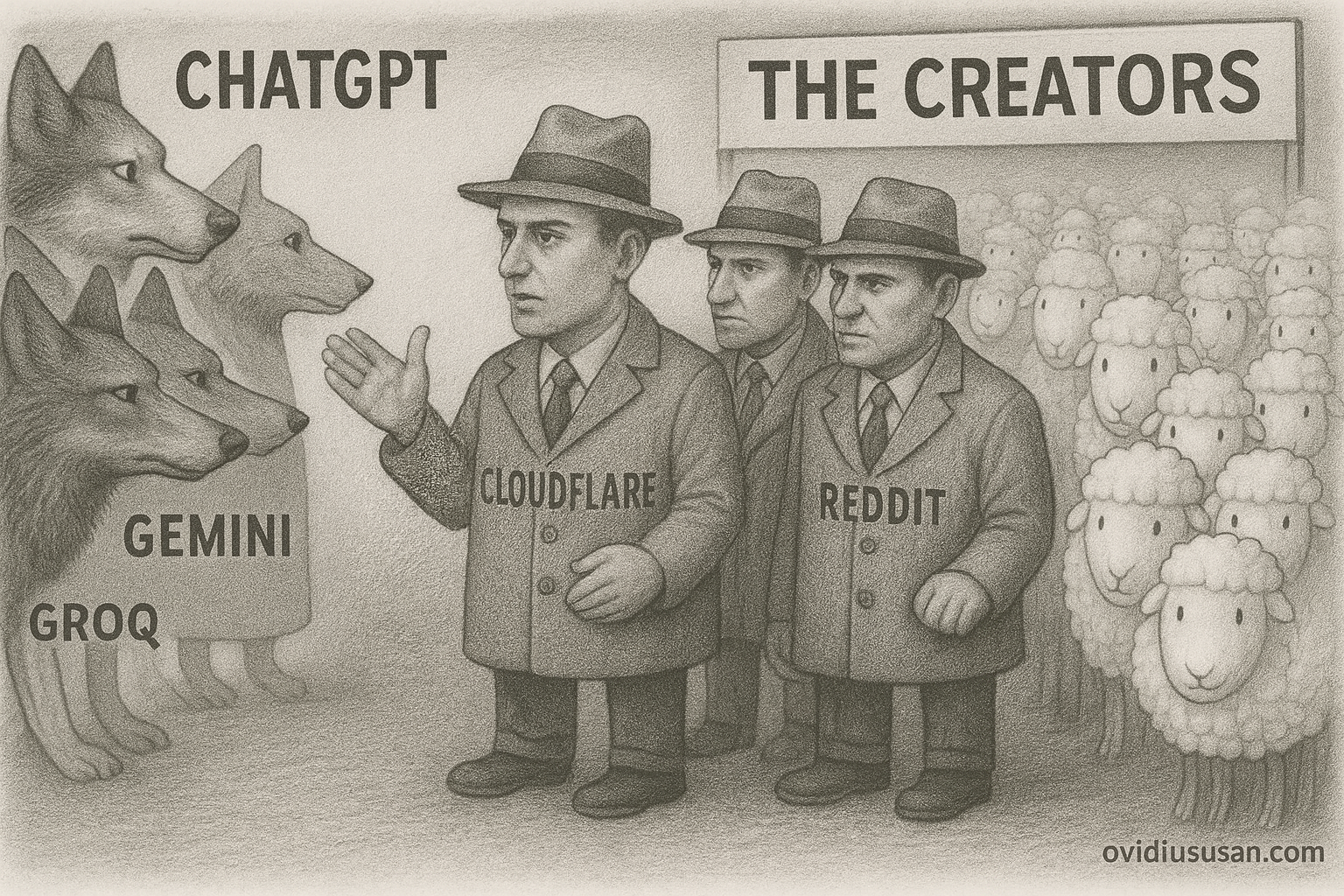From Search to Synthesis: How AI Rewires the Content Value Chain
The foundational model of the Internet as we know it - content creation for search engine discovery - is eroding. The long-standing practice of optimizing content for search engine algorithms (SEO) is becoming obsolete as user behavior shifts from a search-and-discover model to an ask-and-receive model, mediated by AI. Large language models (LLMs) compress many sources into a single response, inserting a thick machine layer between content consumers and content creators. This transition toward summarized content from chatbots will fundamentally restructure the digital content value chain.
Content creators face a strategic bifurcation:
- Optimize for AI Ingestion: The focus shifts from human readability and keyword density to creating structured, fact-dense, and verifiable content that large language models (LLMs) can easily parse and trust. The goal would be to become a primary source for the AI, not the end-user.
- Bypass the AI: Cultivate direct channels to human audiences through platforms where direct engagement is paramount, such as social media, niche forums, and newsletters. This model emphasizes community and brand loyalty over broad, anonymous discovery.
This bifurcation creates a significant market opportunity for a new tier of content intermediaries. We are witnessing the genesis of a B2B content market where entities, evolving from models like Substack or Medium, will aggregate, curate, and license content to AI developers. Reddit's recent content licensing deal is a possible precursor to this model.
In the future, specialized intermediaries should emerge. These firms will function similarly to how companies like Innodata processes data for AI training: they will identify and vet premium content, compensate creators, and package it for sale to AI labs. This establishes a formal, scalable business model where creator compensation is tied to the value their content provides as training data and inference grounding source data, not just advertising impressions. For entrepreneurs, this represents a clear business opportunity to build the curation and licensing platforms of the future.
For investors, this paradigm shift suggests focusing on companies positioned to thrive in a fragmented internet:
- Data Intermediaries: Companies that aggregate proprietary or high-value, community-generated data are prime candidates. This includes platforms like Reddit, with its vast archive of human conversation, and maybe Spotify, with its extensive audio data. Their value proposition shifts from user engagement metrics to the licensable quality of their data assets.
- Gatekeepers: Incumbents who control access to critical infrastructure will become even more powerful. Service providers like Cloudflare, which control access and data flow, are positioned to benefit from a new business model where they become commercial representatives for the content creators. Google remains a key player through its ownership of unique content ecosystems like YouTube.

The monolithic, Google Search - centric internet is fracturing. In its place, we will likely see multiple, vertically integrated ecosystems, each fronted by a proprietary chatbot. Understanding the emerging roles of creators, intermediaries, and gatekeepers is essential for identifying the next wave of value creation.